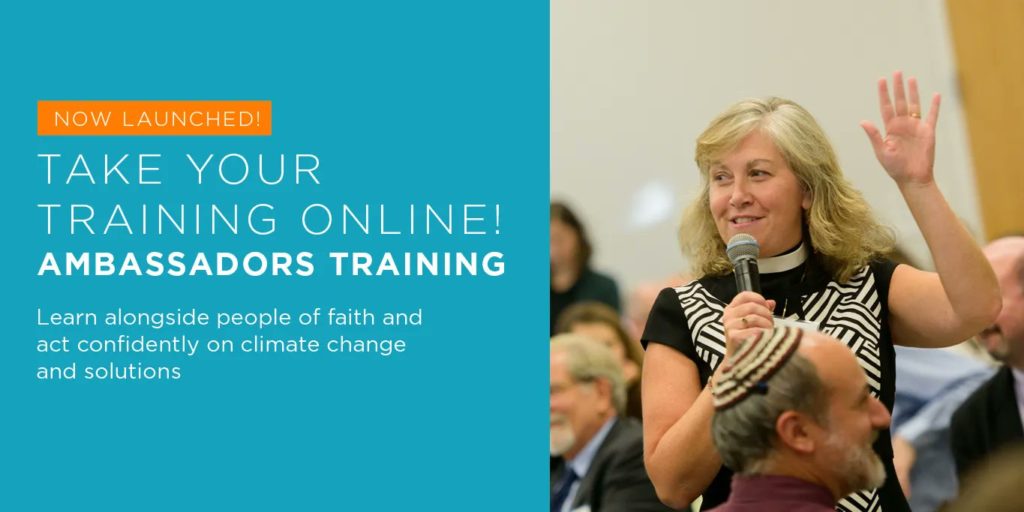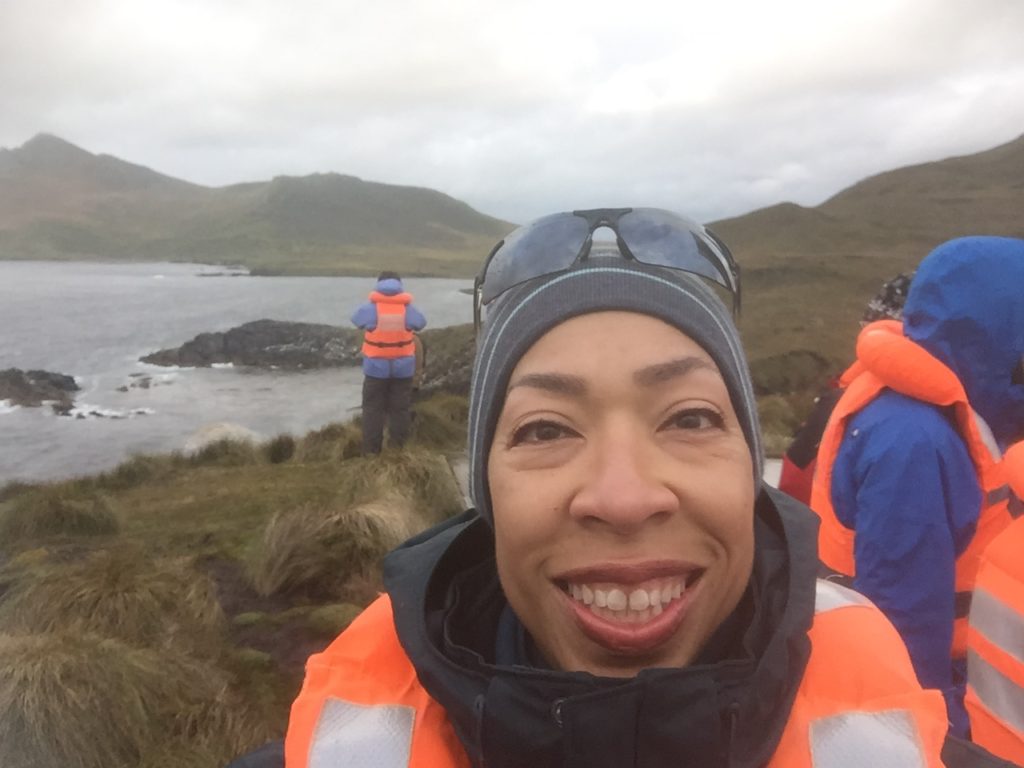by Dawn Baity
Climate change is the most pressing moral and global issue of our age. This is a statement echoed worldwide. Growing seasons are changing, oceans are getting warmer, and wildlife habitats are disappearing. Extreme weather events occur with greater frequency and severity result in annual catastrophic losses and permanent displacement of entire communities worldwide. As a community of people striving to see God in ourselves and in others, our faith places us on the front line of this issue.
I love being outdoors. A day spent crossing a prairie, trekking in the mountains, walking beneath towering trees, or hiking on coastal trails is prayer and meditation. I love the energy of ocean waves, rushing rivers, and the peaceful swaying sounds tall pines make in firm, steady wind. When I think of creation, and what it means to care for and protect our planet, these are the things that immediately come to my mind. It’s where the connection to creation care and climate action takes root for me. These are things that I never want to go without. It helps me see how every living thing in God’s creation is connected.
In November 2021, I was honored to participate in a 24-member virtual delegation that represented The Episcopal Church at the United Nations COP26 climate conference. It was a 2-week global summit of advocates, activists, scientists, economists, and business and government leaders working to develop stronger more aggressive action that will mitigate climate impact. Amid the overwhelming amount of information, speeches, and declarations, I concluded that the urgency of climate change will only intensify if we place responsibility in the hands of governments and corporations to find solutions while we do nothing.
As members of the body of Christ, our faith guides us toward a moral imperative to protect and care for God’s creation. Each of us has a unique source of connection and a point of entry. Climate action begins with us speaking out and acting from where we are, and each of us has all have a part that contributes to the whole. Many people care about the preservation of the planet and want to engage in meaningful loving climate action in their congregations and communities, but developing a thoughtful, prayerful beginning and building inertia is a challenge. I and several of my fellow delegates were invited to train as ambassadors with The Episcopal Church’s faith-based climate action partner, Blessed Tomorrow. The training helped me work with the leaders in my ministry initiative to build a logical framework for guiding the members of the Convocation through programming and progressive climate action.
Self-described as a coalition of diverse religious partners united as faithful stewards of God´s creation, Blessed Tomorrow is an ecumenical resource for information, advocacy, and leadership training that provides tools for building climate action ministries and programming at the congregational and grassroots community levels. It has been useful to me in my work in support of the Convocation, and I invite clergy, parish administrators, and those working in creation and climate ministry leadership roles, to explore Blessed Tomorrow’s online opportunities including the Climate Ambassador Training.

Dawn Baity is an Episcopal mission volunteer living in Madrid, Spain. Originally from Chicago, Dawn serves as the missioner for creation care with the Convocation of Episcopal Churches in Europe. Her service and ministry support the Convocation’s Creation & Climate Change ministry initiative.
